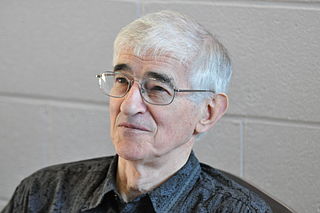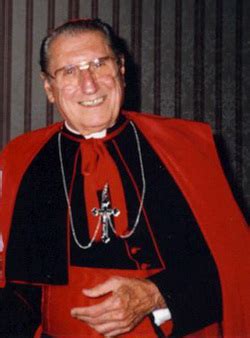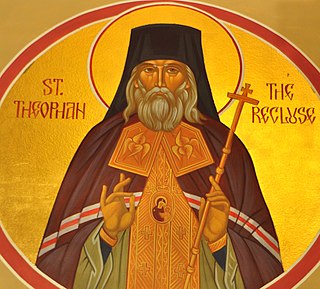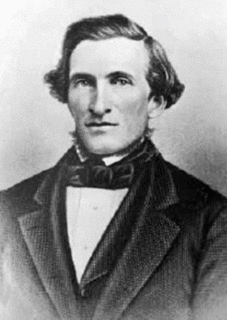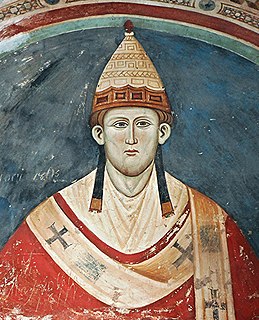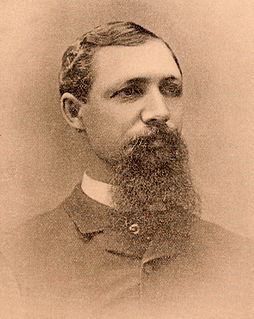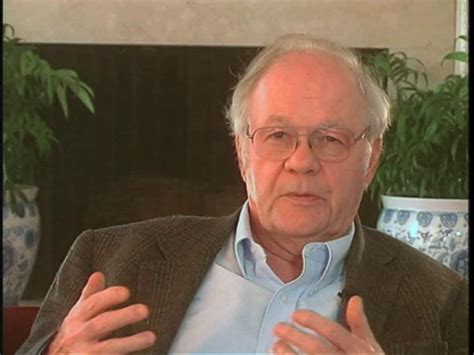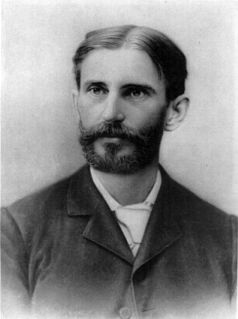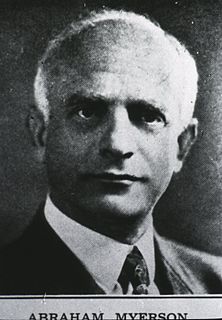Top 117 Crucifixion Quotes & Sayings - Page 2
Explore popular Crucifixion quotes.
Last updated on April 22, 2025.
The Gospels record that nearly everywhere the Savior went, He was surrounded by multitudes of people. Some hoped that He would heal them; others came to hear Him speak. Others came for practical advice. Toward the end of His mortal ministry, some came to mock and ridicule Him and to clamor for His crucifixion.
Jesus' death by crucifixion under Pontius Pilate is as sure as anything historical can ever be. For if no follower of Jesus had written anything for one hundred years after his crucifixition, we would still know about him from two authors not among his supporters. Their names are Flavius Josephus and Cornelius Tacitus.
A good friend, who knows whereof he speaks, has observed of trials, ‘If it’s fair, it is not a true trial!’ That is, without the added presence of some inexplicableness and some irony and injustice, the experience may not stretch us or lift us sufficiently. The crucifixion of Christ was clearly the greatest injustice in human history, but the Savior bore up under it with majesty and indescribable valor.
Remember that each of us has his own cross. The Golgotha of this cross is our heart: it is being lifted or implanted through a zealous determination to live according to the Spirit of God. Just as salvation of the world is by the Cross of God, so our salvation is by our crucifixion on our own cross.
If there were nothing else of Abraham Lincoln for history to stamp him with, it is enough to send him with his wreath to the memory of all future time, that he endured that hour, that day, bitterer than gall - indeed a crucifixion day - that it did not conquer him - that he unflinchingly stemmed it, and resolved to lift himself and the Union out of it.
I've always assumed that every time a child is born, the Divine reenters the world. Okay? That's the meaning of the Christmas story. And every time that child's purity is corrupted by society, that's the meaning of the Crucifixion story. Your man Jesus stands for that child, that pure spirit, and as its surrogate, he's being born and put to death again and again, over and over, every time we inhale and exhale, not just at the vernal equinox and on the twenty-fifth of December.
The grand reason of the burst of public sentiment in anathemas upon Christ and his disciples, causing his crucifixion, was evidently based upon polygamy, according to the testimony of the philosophers who rose in that age. A belief in the doctrine of a plurality of wives caused the persecution of Jesus and his followers. We might almost think they were 'Mormons.'
The role that blood plays in Christian iconography is huge - the washing of the blood, the shedding of blood, the blood of the cross, the crucifixion, the violence of that imagery. These are horrific, and yet they are at the center of the Christian faith. There is a place where beauty and terror merge, and it's at the cross.
The earthly form of Christ is the form that died on the cross. The image of God is the image of Christ crucified. It is to this image that the life of the disciples must be conformed; in other words, they must be conformed to his death (Phil 3.10, Rom 6.4) The Christian life is a life of crucifixion (Gal 2.19) In baptism the form of Christ's death is impressed upon his own. They are dead to the flesh and to sin, they are dead to the world, and the world is dead to them (Gal 6.14). Anybody living in the strength of Christ's baptism lives in the strength of Christ's death.
One of my great experiences in life was to be interviewed on a late-night talk show by a guy named Tom Snyder. He was interviewing me on a book I had written on the New Testament of the Bible called Rescuing the Bible from Fundamentalism, and we talked about the dating of the books of the New Testament, and I said, "Well, the consensus is that the gospels were written some forty to seventy years after the crucifixion." And he stopped me and said, "Wait a minute, Bishop, that means they couldn't have been written by eyewitnesses."
The resurrection is the keystone of the arch on which our faith is supported. If Christ has not risen, we must impeach all those witnesses for lying. If Christ has not risen, we have no proof that the crucifixion of Jesus differed from that of the two thieves who suffered with him. If Christ has not risen, it is impossible to believe his atoning death was accepted.
Any objection to the carryings on of our present gold-calf Christianity is met with the triumphant reply, ‘But we are winning them!’ Winning them to what? To true discipleship? To cross-carrying? To self-denial? To separation from the world? To crucifixion of the flesh? To holy living? To hard self-discipline ? To love for God? To total committal to Christ? Of course the answer to all these questions is...No.
Either [Jesus] was what he said he was or he was the world's greatest liar. It is impossible for me to believe a liar or charlatan could have had the effect on mankind that he has had for 2000 years. We could ask, would even the greatest of liars carry his lie through the crucifixion, when a simple confession would have saved him? ... Did he allow us the choice... to believe in his teaching but reject his statements about his own identity?
People will listen to sophisticated physicists, using God as a kind of metaphor for the deep constants, the deep problems, the deep principles of physics, and say that in that sense I believe in God. The reaction is, "Oh, this great physicist believes in God - that means I'm free to believe in the trinity and in the crucifixion and in the reincarnation of Christ" - and all that stuff, which of course has nothing whatever to do with the fundamental constants of physics, which is what these physicists are talking about.
Modern romance, like Greek tragedy, celebrates the mystery of dismemberment, which is life in time. The happy ending is justly scorned as a misrepresentation; for the world, as we know it, as we have seen it, yields but one ending: death, disintegration, dismemberment, and the crucifixion of our heart with the passing of the forms that we have loved.
I'm thinking, "What difference will this sermon make in their lives tomorrow? What am I trying to give them that will make a difference?" For example, had to do with the theme that Jesus will not let go of you. He's holding onto you. I talked to them about the disciples and Peter on the night before the crucifixion of Christ - how Jesus said that all of you are going to turn away, but He would be waiting for them in Galilee.
Down you go, but all the while you feel suspended and buoyed as you somersault in slow motion like a somnolent tumbler pigeon, and sprawl supine on the eiderdown of the air, or lazily turn to embrace your pillow, enjoying every last instant of soft, deep, death-padded life, with the earth's green see-saw now above, now below, and the voluptuous crucifixion, as you stretch yourself in the growing rush, in the nearing swish, and then your loved body's obliteration in the Lap of the Lord.
The crucifixion saved him [Jesus]. He never had to deal with the fact that the kingdom of God wasn't ever going to come. His disciples, of course, had to deal with it, and little by little they had to realize that it's a metaphorical thing. Well, that's not what Jesus meant. I'm fairly sure he meant it literally. But he must have been the most fascinating man.
Apart from it, the incarnation and the ministry would lose all their significance, the crucifixion would be but a martyrdom, and the cross a symbol of the victory of death over life. By the Resurrection it was that the Crucified One was "declared to be the Son of God with power," the great truth on which the Christian's faith is founded, and to which his hope is anchored. That Christ died for our sins is the Gospel of the Christian religion regarded as a human cult. The Gospel of Christianity goes on to declare "That He rose again the third day according to the Scriptures"
Suppose, however, that God did give this law to the Jews, and did tell them that whenever a man preached a heresy, or proposed to worship any other God that they should kill him; and suppose that afterward this same God took upon himself flesh, and came to this very chosen people and taught a different religion, and that thereupon the Jews crucified him; I ask you, did he not reap exactly what he had sown? What right would this god have to complain of a crucifixion suffered in accordance with his own command?
. . . an absurd problem came to the surface: 'How COULD God permit that (crucifixion of Jesus Christ)!' . . . the deranged reason of the little community found quite a frightfully absurd answer: God gave his Son for forgiveness, as a SACRIFICE . . . The SACRIFICE FOR GUILT, and just in its most repugnant and barbarous form - the sacrifice of the innocent for the sins of the guilty! What horrifying heathenism!
Could we bring ourselves to feel what the first spectators of an Egyptian statue, or a Romanesque crucifixion, felt, we would make haste to remove them from the Louvre. True, we are trying more and more to gauge the feelings of those first spectators, but without forgetting our own, and we can be contented all the more easily with the mere knowledge of the former, without experiencing them, because all we wish to do is put this knowledge to the work of art.
We may say that on the first Good Friday afternoon was completed that great act by which light conquered darkness and goodness conquered sin. That is the wonder of our Saviour's crucifixion. There have been victories all over the world, but wherever we look for the victor we expect to find him with his heel upon the neck of the vanquished. The wonder of Good Friday is that the victor lies vanquished by the vanquished one. We have to look deeper into the very heart and essence of things before we can see how real the victory is that thus hides itself under the guise of defeat.
Lord, help us to see in your crucifixion and resurrection an example of how to endure and seemingly to die in the agony and conflict of daily life, so that we may live more fully and creatively. You accepted patiently and humbly the rebuffs of human life, as well as the torture of the cross. Help us to accept the pains and conflicts that come to us each day as opportunity to grow as people and become more like you-make us realize that it is only by frequent deaths of ourselves, and our self-centered desires that we can come to live more fully, only by dying with you that we can rise with you.
Animals are God's creatures, not human property, nor utilities, nor resources, nor commodities, but precious beings in God's sight. ...Christians whose eyes are fixed on the awfulness of crucifixion are in a special position to understand the awfulness of innocent suffering. The Cross of Christ is God's absolute identification with the weak, the powerless, and the vulnerable, but most of all with unprotected, undefended, innocent suffering.
Faith, then, is not a set of beliefs about the world. It is rather found in the loving embrace of the world. Because the actual existing church has reduced the Crucifixion and Resurrection to religious affirmations held by a certain tribe, rather than expressions of a type of life, the event they testify to has been almost completely eclipsed.
Do you know what's most interesting? Working with the very strong restrictions of the institution. In the Renaissance, the aristocrats would order paintings from the artist. They would order the Crucifixion of Jesus. The restrictions were amazing. Jesus had to be in the middle, three apostles on the left, four apostles on the right - and still you had masterpieces. It's really interesting to work within restriction, and see what you can do with restriction.
Men are anxious to improve their circumstances, but are unwilling to improve themselves; they therefore remain bound. The man who does not shrink from self-crucifixion can never fail to accomplish the object upon which his heart is set. This is true of earthly as of heavenly things. Even the man whose object is to acquire wealth must be prepared to make great personal sacrifices before he can accomplish his object; and how much more so he who would realize a strong and well-poised life.
When you grow up being taught to worship, whatever that means, there is an array of body-rich symbols: tears, blood, crucifixion, the stations of the cross, transubstantiation... Faith is a belief in something that is irrational, and so to have faith, there is some correlation there with the belief in the art.
The sin that Jesus bore, and that we are now empowered to live free from, includes all the sinful warrior deity images humans throughout history have projected onto God. In this way, the cross is at one and the same time the definitive revelation of the true loving God and the "crucifixion of the warrior god". And just as we should forever revolt against the sin and that was permanently put to death on the cross, so too followers of Jesus should forever revolt against the sinful warrior image of God that was permanently put to death on the cross.
I keep wondering if, say, there is intelligent life on other planets, the scientists argue that something like two percent of the other planets have the conditions, the physical conditions, to support life in the way it happened here, did Christ visit each and every planet, go through the same routine, the Agony in the Garden, the Crucifixion, and so on.
The utter failure came at the Crucifixion in the tragic words, 'My God, my God, why hast thou forsaken me?' If you want to understand the full tragedy of those words you must realize what they meant: Christ saw that his whole life, devoted to the truth according to his best conviction, had been a terrible illusion. He had lived it to the full absolutely sincerely, he had made his honest experiment, but it was nevertheless a compensation. On the cross his mission deserted him. But because he had lived so fully and devotedly he won through to the Resurrection body.
The time has also come to recognize the painful truth that traditional Judeo-Christian moral values of pain and pleasure in human relationships have contributed substantially to child abuse and to the prevalence of physical violence in Western civilization.... The religious system upon which our culture is based holds that pain, suffering and deprivation are moral and necessary to save one's soul and make one a 'good person.' The crucifixion and scourging of Christ are examples.
To be connected with the church is to be associated with scoundrels, warmongers, fakes, child-molesters, murderers, adulterers, and hypocrites of every description. It also, at the same time, identifies you with saints and the finest persons of heroic soul within every time, country, race, and gender. To be a member of the church is to carry the mantle of both the worst sin and the finest heroism of soul . . . because the church always looks exactly as it looked at the original crucifixion, God hung among thieves.
A high place of honor, although doubtless one to be obtained only after enduring the pangs of a prolonged crucifixion, awaits that philosophical biologist, or that philosopher sufficiently acquainted with scientific biology, who subjects the modern doctrine of evolution to a thoroughly critical analysis, with a view to detect and to estimate its metaphysical assumptions.
Only with great care. For thousands, carols will be their only link with a church. At the same time, sentimentality is perhaps the single most dangerous feature of our Church and culture-and the sentimental air is never thicker than at Christmas. The Incarnation is messy, dirty, and resonates with the crucifixion. We need a new wave of carol writing that can gradually swill out the nonsense and catch the piercing, joy-through-pain refrains of the New Testament.
Because no other could do it, he himself went to the greatest possible distance, the infinite distance. This infinite distance between God and God, this supreme tearing apart, this incomparable agony, this marvel of love, is the crucifixion. Nothing can be further from God than that which has been made accursed.
The man with a cross no longer controls his destiny; he lost control when he picked up his cross. That cross immediately became to him an all-absorbing interest, an overwhelming interference. No matter what he may desire to do, there is but one thing he can do; that is, move on toward the place of crucifixion.
There are four great events in history, the siege of Troy, the life and crucifixion of Christ, the exile of Krishna in Brindaban and the colloquy on the field of Kurukshetra. The siege of Troy created Hellas, the exile in Brindaban created devotional religion, (for before there was only meditation and worship), Christ from his cross humanized Europe, the colloquy at Kurukshetra will yet liberate humanity.
Zen says that if you drop knowledge - and within knowledge everything is included; your name, your identity, everything, because this has been given to you by others - if you drop all that has been given by others, you will have a totally different quality to your being: innocence. This will be a crucifixion of the persona, the personality, and there will be a resurrection of your innocence. You will become a child again, reborn.
Categorical condemnation is the hatred of the mob. It makes cowards brave. And there is nothing more fearful than a religious mob, a mob overflowing with righteousness – as at the crucifixion and before and since. This can happen only after we have made a categorical refusal to kindness: to heretics, foreigners, enemies or any other group different from ourselves.
By a beautiful paradox of Divine love, God makes His Cross the very means of our salvation and our life. We have slain Him; we have nailed Him there and crucified Him; but the Love in His eternal heart could not be extinguished. He willed to give us the very life we slew; to give us the very Food we destroyed; to nourish us with the very Bread we buried, and the very Blood we poured forth. He made our very crime into a happy fault; He turned a Crucifixion into a Redemption; a Consecration into a Communion; a death into Life Everlasting
The Gospels were written in such temporal and geographical proximity to the events they record that it would have been almost impossible to fabricate events. Anyone who cared to could have checked out the accuracy of what they reported. The fact that the disciples were able to proclaim the resurrection in Jerusalem in the face of their enemies a few weeks after the crucifixion shows that what they proclaimed was true, for they could never have proclaimed the resurrection under such circumstances had it not occurred.
Society expects man to be a passive social animal who believes like the People of the Field in "Jurgen" that "to do what you always have done" and "what is expected of you" are the twin rules of life. This, is course, is not true. The wanton crucifixion of impulses, the unnecessary blocking and frustration of the drives and urges, are an evil that reflects itself in sophistication, ennui and boredom, dissatisfaction, melancholy, fatigue, anxiety and neurosis.

